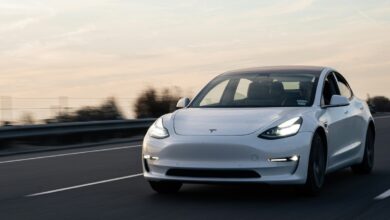Americans’ Skepticism of Self-Driving Cars Backed by New Study
A report from global market research firm Ipsos has found that nearly one in four Americans would never use an autonomous vehicle (AV). Ipsos surveyed more than 21,000 adults across 28 countries about acceptance of AVs, which autonomous features are most in demand, potential ownership models and regulation options.
The report was part of Ipsos’ What the Future series, which, according to the company, couples survey data and interviews with experts to see what questions companies should be asking themselves about the future of their industries. This issue of What the Future focused on mobility and whether or not people are ready for the coming technology.
The report found that, despite American tech and automotive companies leading the way in AV development, Americans are among the most reluctant to use AVs. In contrast, people in China are twice as likely to say they can’t wait to use AVs than people in America or Canada.
Report Results
- More people would prefer to continue owning their own vehicle (42 percent) than to hire one on a per-use basis (22 percent) or lease one for a monthly subscription fee (14 percent)
- Democrats (59 percent) were more likely than Republicans (46 percent) to say they had a favorable view of self-driving cars
- Many Americans are unsure where regulation should come from, but would prefer manufacturers and tech companies (36 percent) to self-regulate versus having the government regulate (24 percent)
- Cost will be a factor-24 percent said they would switch to a self-driving car if it cost the same as their current car, but 45 percent would switch if it cost much less
- Many Americans (30 percent) would take more road trips in self-driving cars, including longer trips and new destinations
- Globally, a majority of those surveyed say that AVs will be easier, more comfortable, safer, more relaxing, more economical, more enjoyable, and friendlier to the environment. Fewer think AVs will be faster
- Americans are more skeptical of touted benefits including improved safety, comfort and ease-of-use
- Autonomous parking is the feature respondents are most ready to use, with 58 percent saying they would utilize autonomous functionality always or frequently. Many (47 percent) would use it for commuting and stop-and-go traffic, and 52 percent would use it for long-distance drives
- Americans under 35 have more favorable views of self-driving cars and their benefits
The reluctance of Americans to embrace this emerging technology may have to do with America’s strong identity as a car culture, according to Ipsos. Nearly six in 10 people consider themselves car people, and 81 percent feel that the car they drive reflects their personality, at least to some degree.
The report also hinted at a coming car-culture clash, as noticeable divides about acceptance of autonomous vehicles are seen along political lines. It found that Democrats are more supportive of autonomous vehicles, more interested in their features and benefits and more assured that these vehicles are coming in the near future.
“The safety improvements, potential cost-saving, and increased convenience might well prove a trifecta of benefits that can trump any sort of political discord,” said Clifford Young, president of Ipsos public affairs in the U.S. “But social change on this scale does not happen without conflict, and those who do not plan for it will be the first to see their plans derailed by our age of uncertainty.”
About the Study
For the global study, 21,549 interviews were conducted from Nov. 27 to Dec. 8 among adults aged 18-64 in the U.S. and Canada, and adults aged 16-64 in all other countries.
The survey was conducted in 28 countries around the world via the Ipsos Online Panel system: Argentina, Australia, Belgium, Brazil, Canada, Chile, China, Colombia, France, Great Britain, Germany, Hungary, India, Italy, Japan, Malaysia, Mexico, Peru, Poland, Russia, Saudi Arabia, Serbia, South Africa, South Korea, Spain, Sweden, Turkey and the U.S. Data is weighted to match the profile of the population.
Additional U.S. and Canadian data are from a series of Ipsos polls including an Ipsos survey conducted Feb. 16-20 among 1,005 U.S. adults; an Ipsos survey conducted Dec. 19-21 among 2,000 U.S. adults; an Ipsos survey conducted Feb. 23-26 among 1,000 Canadian adults; and an Ipsos survey conducted Feb. 20-22 among 1,002 Canadian adults.
See Ipsos.com/en-us for full datasets and methodology.



